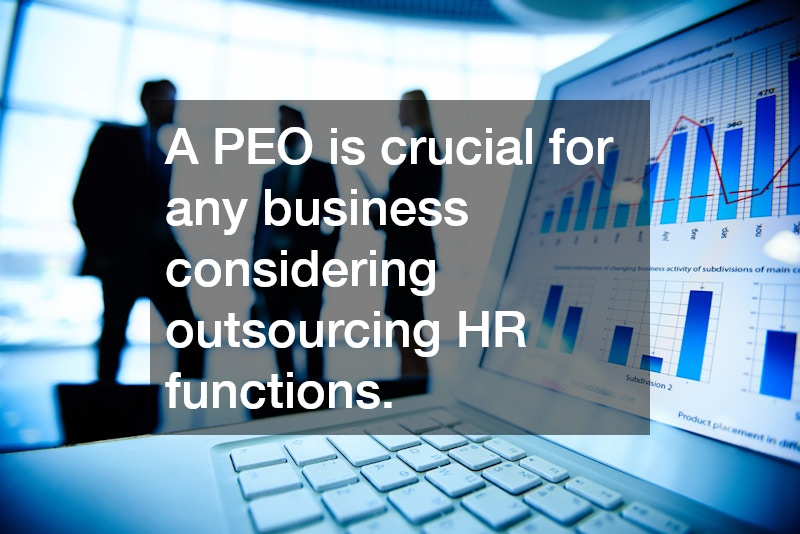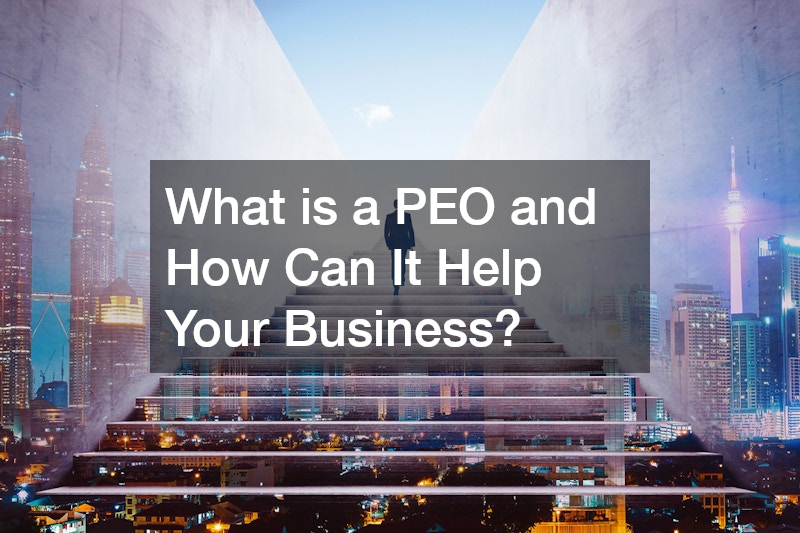
For small and medium-sized businesses, managing human resources, payroll, benefits, and compliance can be overwhelming. Many business owners spend hours navigating complex HR regulations instead of focusing on growth and operations. This is where a PEO, or Professional Employer Organization, comes into play.
A PEO acts as a partner for businesses, providing comprehensive HR solutions and allowing owners to outsource essential administrative functions. By collaborating with a PEO, companies gain access to professional HR expertise, streamlined payroll services, employee benefits management, and regulatory compliance support.
This type of partnership can help businesses operate more efficiently while reducing administrative burdens.
When asking what is a PEO, it’s essentially a company that shares employer responsibilities with your business. The PEO becomes a co-employer, handling specific HR tasks while you maintain control over daily operations and business strategy. This arrangement enables businesses to provide high-quality employee services without hiring a large internal HR department.
Key Services Provided by a PEO
One of the main advantages of working with a PEO is access to comprehensive employee management services. These services often include payroll administration, tax filings, workers’ compensation, and employee benefits management. PEOs can also help with onboarding, training programs, and employee handbooks, ensuring consistent policies across the organization.
By centralizing these services, a PEO reduces administrative complexity, lowers the risk of compliance violations, and improves operational efficiency. Small businesses, in particular, benefit from access to resources that would typically be available only to larger companies. With competitive employee benefits, including health insurance, retirement plans, and wellness programs, businesses can attract and retain top talent more effectively.
How a PEO Supports Compliance
Navigating labor laws and employment regulations can be challenging for business owners. A PEO provides guidance on local, state, and federal compliance, helping businesses avoid costly fines and legal issues. From wage and hour laws to workplace safety requirements, PEOs ensure that HR practices align with regulations, reducing the risk of penalties.
Additionally, PEOs stay up-to-date on changes in employment laws, providing businesses with timely advice and necessary adjustments. This proactive approach allows companies to focus on strategic growth rather than constant monitoring of regulatory changes. Compliance support is particularly valuable for businesses operating in multiple states, as employment regulations can vary significantly by location.
Cost and Efficiency Benefits
Outsourcing HR functions through a PEO can also provide financial advantages. By pooling resources with multiple businesses, PEOs often negotiate better rates for employee benefits and insurance coverage. This allows smaller companies to access benefits that may have been cost-prohibitive otherwise.
In addition, a PEO can streamline payroll processing, reduce administrative errors, and improve employee satisfaction. By handling routine HR tasks, your internal team can focus on strategic initiatives, client service, and business growth. The efficiency gains from partnering with a PEO can translate into measurable time and cost savings over the long term.
Choosing the Right PEO
Selecting the right PEO requires careful consideration. Businesses should evaluate potential partners based on experience, service offerings, client support, and technology platforms. It’s important to choose a PEO that aligns with your company’s size, industry, and specific HR needs. Taking the time to research and compare multiple options ensures you find a partner that truly complements your business goals.
Transparency is also essential. Businesses should understand the co-employment arrangement, costs, and responsibilities of both parties. By doing so, they can maximize the benefits of the partnership while maintaining control over their operations.
Who Can Benefit Most?
A wide range of businesses can benefit from a PEO, but small and medium-sized companies often see the most significant impact. Startups may lack internal HR infrastructure, while growing businesses can be overwhelmed by payroll and compliance demands. In both cases, a PEO provides professional support and resources that allow owners to focus on revenue-generating activities.
Larger companies may also benefit from outsourcing specific HR functions to improve efficiency or access specialized expertise. Regardless of size, businesses seeking to reduce administrative burdens and provide competitive employee benefits may find a PEO partnership valuable.
So, what is a PEO? A PEO is crucial for any business considering outsourcing HR functions. By sharing employer responsibilities, PEOs provide a range of services, including payroll, compliance, and employee benefits management. These partnerships help businesses operate more efficiently, reduce administrative burdens, and offer enhanced support to employees.
For small and medium-sized businesses, a PEO can be a strategic solution for growth. It allows owners to focus on core operations, improve employee satisfaction, and maintain regulatory compliance. With careful selection of a reputable PEO partner, businesses can enjoy cost savings, increased efficiency, and access to resources that would otherwise be out of reach.
Making the Decision: Why Use a PEO?
Before choosing a PEO, it’s important to understand why you should use a PEO in the first place. Many business owners partner with a PEO to save time, reduce administrative stress, and gain access to better employee benefits and HR technology. A PEO can serve as an extension of your business, helping you manage complex HR functions like payroll, compliance, and benefits administration — all while keeping costs under control. This level of support allows entrepreneurs to stay focused on innovation and growth instead of day-to-day HR challenges.
How to Choose a PEO That Fits Your Business
When learning how to choose a PEO, consider factors such as reputation, industry experience, service flexibility, and pricing transparency. Look for a PEO that offers scalable solutions and uses secure, modern HR technology platforms. Reading client reviews, checking accreditation from organizations like ESAC or the IRS, and comparing service agreements can help ensure you’re making a sound investment. The right PEO partnership should feel like a seamless extension of your internal team—reliable, efficient, and aligned with your business goals.
In conclusion, knowing what is a PEO and how it functions can empower business owners to make informed decisions. Partnering with a PEO provides professional HR support, ensures compliance, and improves employee benefits, ultimately helping businesses thrive in a competitive marketplace.




